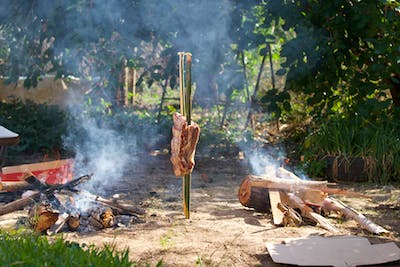Why is Horse Meat Banned in the US? A Historical and Moral Perspective
Image source: Pexels.com
Hi there, welcome to my blog! Today I’m going to talk about a controversial topic: horse meat. Why is it banned in the US? What are the historical and moral reasons behind this decision? And is it really fair to judge other cultures that eat horse meat? Let’s find out!
How come horse meat is illegal in the United States?
The flesh of horses killed for human consumption is known as horse meat. It is a red meat that is lean and tastes and feels like beef. Horse meat is low in fat and cholesterol and high in protein, iron, and vitamin B12.
While it is not against the law to consume horse meat in the US, it is against the law to transport, sell, or own it. This is a result of the 1970 Horse Protection Act, which outlaws the possession, sale, or transportation of horse flesh intended for human consumption.
The ban’s historical and cultural justifications
The US considers horses to be companion animals rather than livestock, which is the primary justification for this ban. Since they have been utilized for transportation, athletics, farming, and as pets, horses have a special position in American history and culture. Eating horses is considered insulting and immoral by many Americans who consider them to be noble, clever, and devoted animals.
The fact that horses are not raised in the US for human consumption and are not thus governed by the same laws and inspection procedures as other animals is another factor in the ban. Human-toxic pharmaceuticals and medications, such phenylbutazone, a painkiller that can lead to blood problems and cancer, may be administered to horses.
The prohibition’s moral and legal dilemmas
Over the years, the prohibition on horse flesh has encountered some ethical and legal difficulties. Certain individuals contend that the prohibition is unlawful since it infringes upon the freedom of choice and trade. They contend that the prohibition is also contradictory since it permits the export of live horses to nations where they are killed for meat.
Some contend that the restriction is ineffectual since it does not stop Americans from abusing and neglecting horses. They contend that the prohibition generates an excess of unwanted horses, who are then abandoned or put to death, or wind up in overcrowded, underfunded shelters. They contend that an ethically and legally controlled horse meat market would provide a better solution for the welfare of horses and the environment.
How is horse meat seen in other nations?
Horse meat is commonly consumed throughout the world, including Asia, Europe, and South America, even though it is frowned upon in the United States. China, Kazakhstan, Mexico, Russia, Italy, Mongolia, Argentina, and Brazil are the eight nations that consume the most horse meat, according to the Food and Agriculture Organization (FAO) of the United Nations.
diverse regions have diverse cultural and historical connotations with horse meat. In China, for instance, horse meat is dried, shaped into sausages, and then eaten with veggies and rice noodles. Horse flesh is seen as a delicacy and a status and wealth marker.
Horse meat is a basic cuisine and a cultural artefact in Kazakhstan. Horse flesh is consumed as a token of appreciation and respect, and horses are held in high regard. Typically, horse meat is eaten with bread and tea after being smoked, boiled, or roasted.
Since the Revolution, horse meat has been considered a gourmet delicacy in France. Their horses were used to feed the populace after the aristocracy collapsed. Horse flesh is frequently served as tartare or carpaccio because it is delicious and delicate.
Is it moral to consume horse meat?
Ethical considerations regarding the consumption of horse meat are based on an individual’s values and beliefs. Eating horse meat is no different from eating any other meat, according to some, and it all comes down to personal taste and cultural variety. There are others who contend that feeding horses meat is inhumane and impolite, and that horses ought to be treated more humanely and protected.
One thing is certain, though: if horse meat is properly prepared and certified, it is not unlawful to eat in the majority of countries and does not pose a health concern. This question has no definitive answer. Consequently, it is each person’s decision to sample horse meat or not, and they should respect the decisions of others.
In summary
The subject of horse meat is divisive and causes strong feelings and arguments. Horse meat is prohibited in the US for moral and historical grounds, yet it is a popular and cherished diet in other nations. It is a matter of personal preference and culture, but eating horse flesh is neither forbidden nor unhealthy. I hope you found this blog post interesting and useful. Remember to subscribe to my blog if you’d like to read more fascinating and educational articles. I appreciate you reading!





0